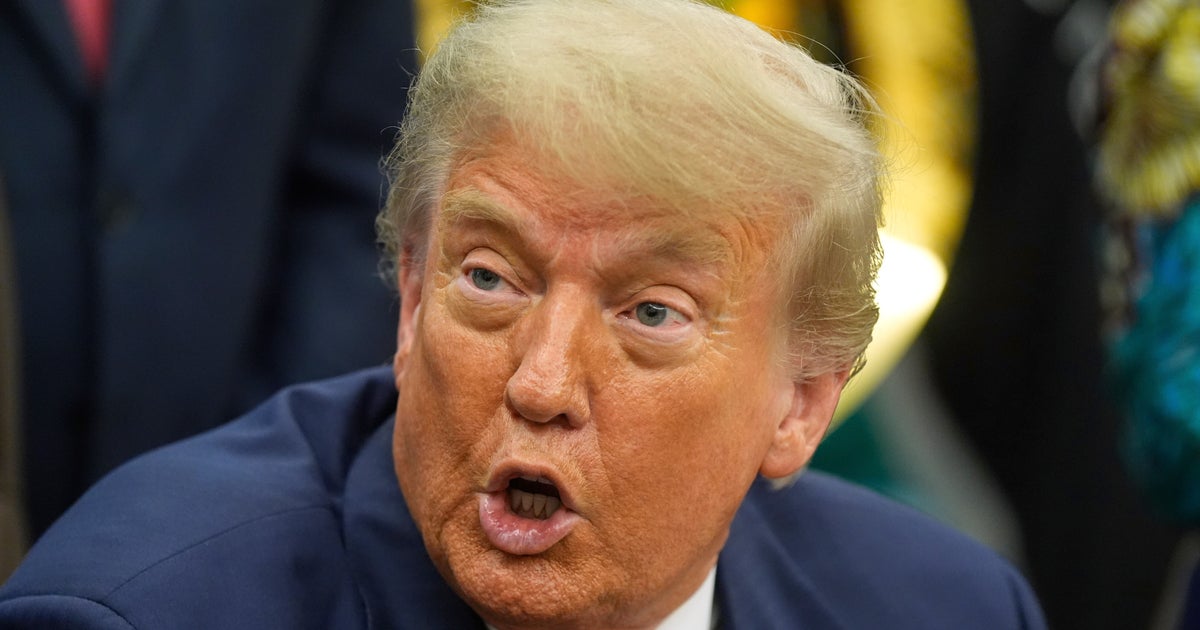In a recent interview with Fox News, former President Donald Trump made headlines with a series of comments that left many observers bewildered. During the conversation with host Maria Bartiromo, Trump suggested imposing new tariffs on Japan, but what caught the most attention was his apparent lapse in recalling the name of Japan’s Prime Minister, Shigeru Ishiba. Instead, Trump referred to him as “Mr. Japan,” a phrase that quickly became a lightning rod for criticism.
The comments were made as Trump discussed his plans to send out letters to various countries, signaling the end of a pause on tariffs. He cited Japan as an example, saying, “Dear Mr. Japan: Here’s the story, you’re going to pay a 25% tariff on your cars.” This statement was intended to address what Trump perceives as an imbalance in the automotive trade between the two nations.
Trade Imbalance and Tariff Talks
Trump’s assertion that the United States receives “millions and millions” of Japanese cars, while Japan takes comparatively few American vehicles, has been a recurring theme in his trade rhetoric. He has often suggested that tariffs are a tool to encourage foreign companies to increase production within the United States. “My message to every business in the world is very simple: Come make your product in America, and we will give you among the lowest taxes of any nation on Earth,” Trump declared in January.
However, the reality of the automotive trade between the U.S. and Japan is more nuanced. According to industry data, the majority of Japanese cars sold in the United States are already manufactured domestically, which means they are less likely to be affected by additional tariffs. Furthermore, Japan has substantial investments in the U.S., with approximately $700 billion invested and nearly one million Americans employed by Japanese firms.
Public Reaction and Political Implications
The unusual phrase “Dear Mr. Japan” quickly became a focal point for critics on social media and political commentators alike. Barbara Comstock, a former U.S. Representative, tweeted, “Dear Mr Japan? Trump doesn’t know what or who he is talking about.” Others pointed out the potential diplomatic faux pas, suggesting that such a mistake would have been met with significant backlash had it been made by President Joe Biden.
“If President Biden started a sentence with ‘Dear Mr. Japan,’ Republicans would never shut up about it and ’25th Amendment’ is all they’d be talking about.” — BrooklynDad_Defiant!☮️
Critics also highlighted the broader implications of Trump’s comments on international relations and trade negotiations. The apparent lapse in recalling a key foreign leader’s name raises questions about the former president’s preparedness and attention to detail in diplomatic matters.
Expert Opinions and Historical Context
Trade experts have weighed in on the potential impact of Trump’s proposed tariffs. While tariffs can be used to protect domestic industries, they can also lead to retaliatory measures and trade wars, which may harm the global economy. Historically, the U.S. and Japan have had a complex trade relationship, with past tensions over automotive exports and imports.
Robert Manning, a senior fellow at the Atlantic Council, emphasized the importance of understanding the intricacies of international trade. “Japan manufactures more cars in the U.S. than it imports. Ignorance of these facts can lead to misguided policies,” Manning noted.
Fact: Japan manufactures more cars in the US than it imports to the US. Japan has some $700 billion invested in the US, employing close to 1 million Americans. — Robert Manning
Looking Ahead
The fallout from Trump’s comments underscores the delicate nature of international diplomacy and trade negotiations. As discussions around tariffs and trade policies continue, it remains crucial for leaders to engage with accurate information and a clear understanding of global economic dynamics.
Moving forward, the focus will likely be on how current and future administrations address trade imbalances and foster healthy economic partnerships. The “Dear Mr. Japan” incident serves as a reminder of the importance of precision and respect in international relations, particularly when addressing key allies like Japan.
